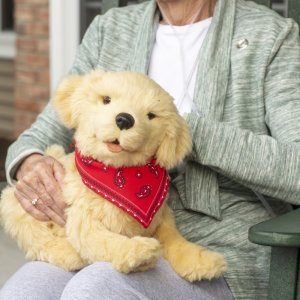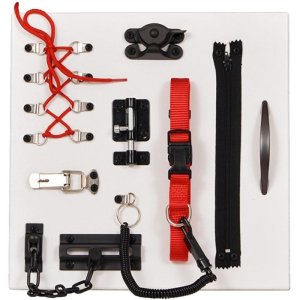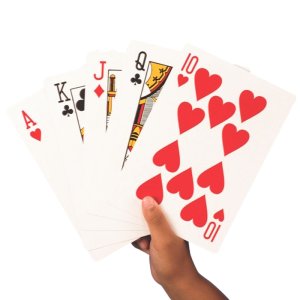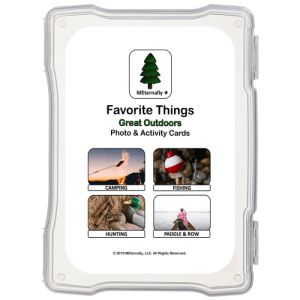The Memory Care Collection is a library of things for adults living with cognitive decline and their care partners. The items in the collection are designed to stimulate, enrich, and bring comfort to people living with Alzheimer’s and related dementias.
Items from the Memory Care Collection are available for loan to all Monroe County library cardholders at no cost through the library’s holds service, making these items accessible to those who may not have the means to purchase them on their own and giving others a chance to “try before they buy”. This collection was developed with funds provided by the Friends & Foundation of the Rochester Public Library.
The 60-Second Survey
Have you borrowed an item from the Memory Care Collection? If so, we hope you had a positive experience sharing it with your loved one or client. Your feedback would mean the world to us. Let your voice inspire future purchases and help us improve the collection by taking our survey.
Questions?
If you have additional questions or comments, Extension/Outreach Department staff can be reached at 428-8311/428-8312 or extension@libraryweb.org.

The Outreach Department is pleased to announce an expansion of our Memory Care Collection due to a generous donation from the family of Mittar Gopal Khaneja.
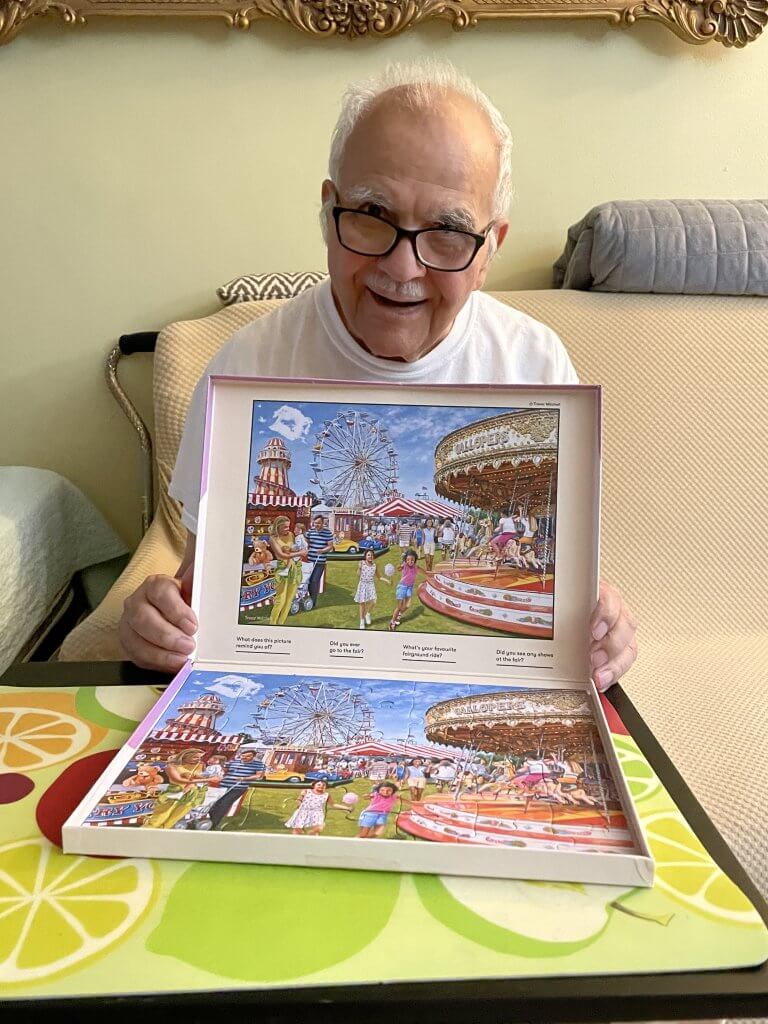
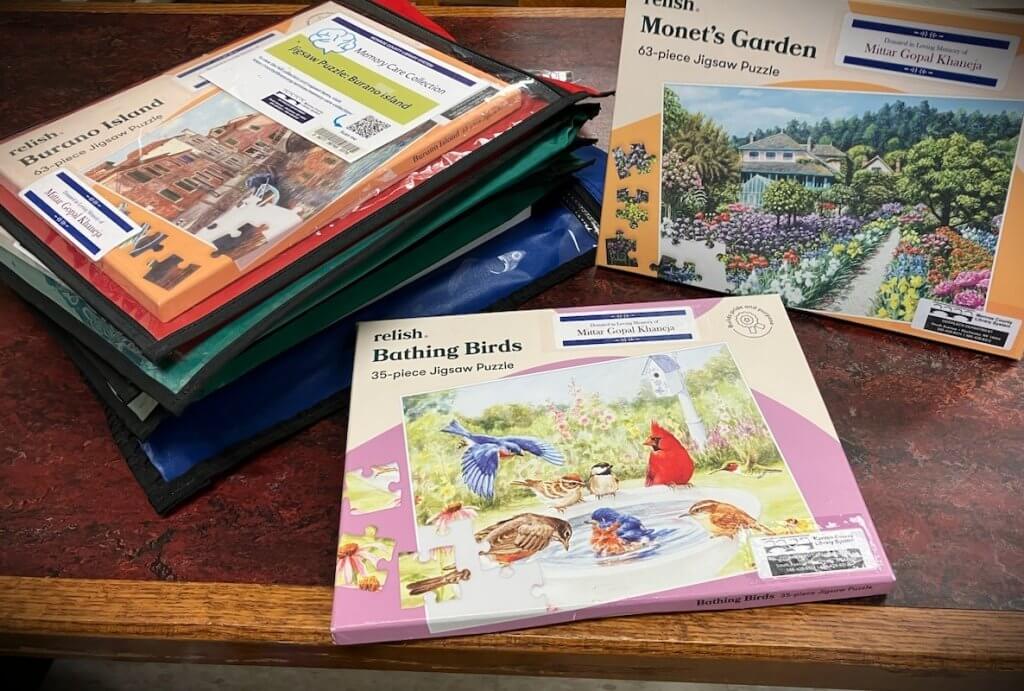
Mr. Khaneja, who passed away in 2023, greatly enjoyed jigsaw puzzles like the ones that we carry in our collection and his family purchased many for him. Later, they discovered our offerings and made the generous donation of Mr. Khaneja’s puzzle collection to the library.
The puzzles have been added to the collection, with a special dedication to Mr. Khaneja included, and holds can be requested for pickup at any Monroe County Library.
Memory Care Collection Lending Policy
- All items are holdable and circulate for three weeks.
- All items except the one-button radio can be shipped to the Monroe County library of your choice.
- The Extension/Outreach Dept. does not charge late fines on items from the Memory Care Collection.
- Charges for lost materials will apply after 42 days, but once the items are returned the charges are erased.
- If an item is damaged or parts are lost, the borrower will be charged the cost of replacing the item.
Tips for Using a Companion Doll or Pet with an Individual Living with Alzheimer’s and Related Dementias (ADRDs)
- Introduce the doll or soft toy animal gradually. You could place it on a chair before the individual enters the room. Wait and see if and how they respond.
- Let the individual discover the doll or toy animal in their own time. If they show no interest, don’t try to press it on them. Some people with ADRDs simply aren’t interested, but you can always try again another day.
- Don’t tell the individual that it is a living baby or animal if that’s not what they perceive. At the same time, handle the doll or toy animal in a gentle way that would not distress them if they did think it was alive.
- If the individual is interested in the doll or toy animal, use it to connect with them. You could ask them questions about the doll or animal, referring to it as he, she, or they.
- If the individual has difficulty communicating, you could make observations about the doll or toy animal instead. For a doll, for example, you could say: “doesn’t she have a nice face?” or “what a pretty dress.” For an animal, you could say: “what lovely fur”, or “it looks like (name of a pet from the past)”.
- Because this is a library item, if the individual does perceive a real baby or animal, be sure to emphasize that this baby/animal is visiting and is not their own.
Tips for Using Games, Puzzles, Reminiscence Activities, and Conversation Starters with an Individual Living with Alzheimer’s and Related Dementias (ADRDs)
- The purpose of introducing these activities should never be competitive or to push or challenge the individual.
- Games benefit individuals living with ADRDs by helping them to connect with, and recall, positive memories. It can also make them feel less lonely, as the game helps spark conversations and so makes it easier for the individual to enjoy quality time with family, friends, and caregivers, across all generations.
- Individuals don’t need to complete the full activity to enjoy or benefit from it. The question cards alone can be used to stimulate conversations across a range of topics and so make communication easier. It’s also not a problem if someone doesn’t want to answer a particular question. They can be offered another card, or play can go on to the next player. There is never any pressure to talk about a particular topic.
Tips for Using Fidget Toys and Sensory Activities with an Individual Living with Alzheimer’s and Related Dementias (ADRDs)
- There’s no right or wrong way to use the toy, allow the individual the independence to decide how they want to play.
- Never force someone who is not interested to engage with a fidget toy or sensory activity.

